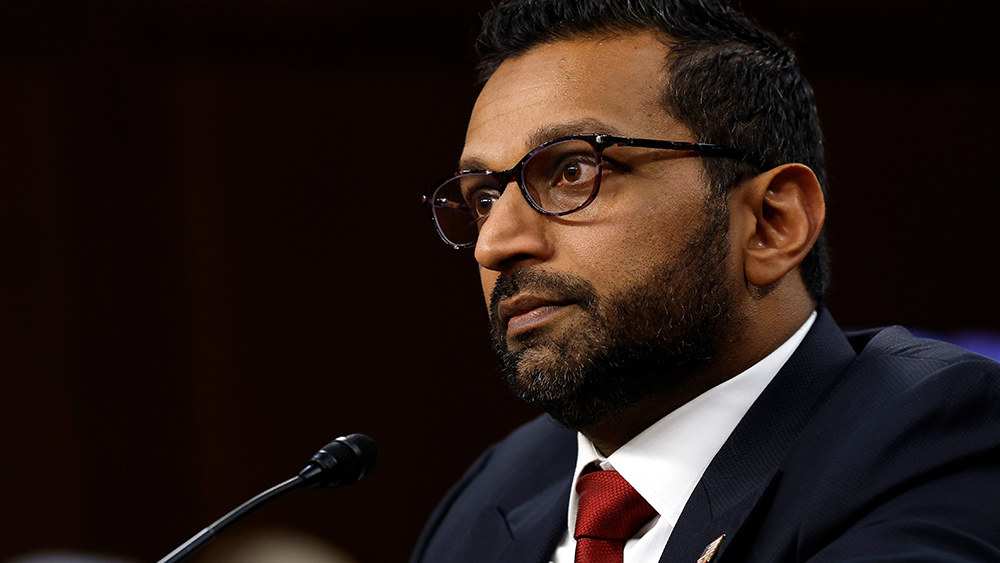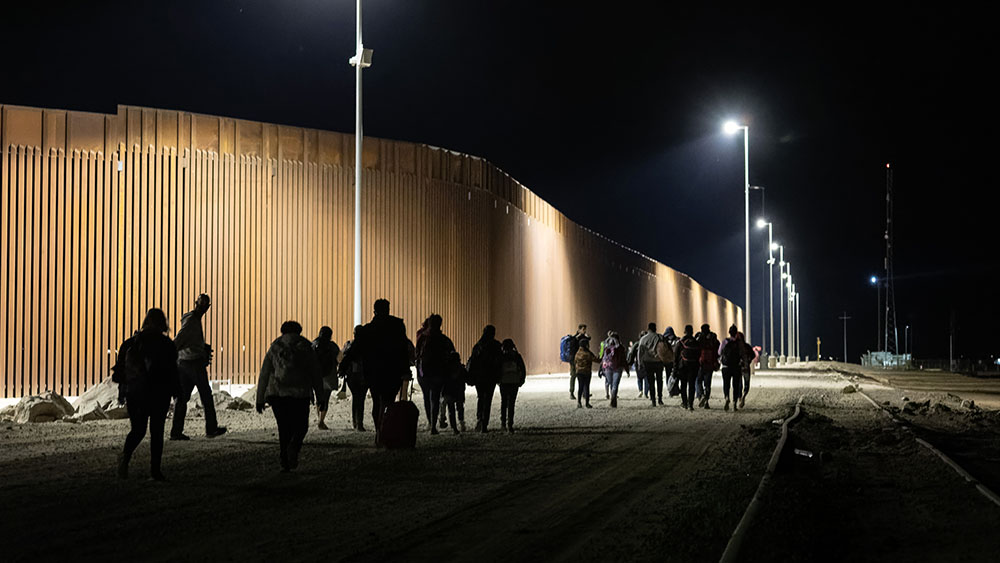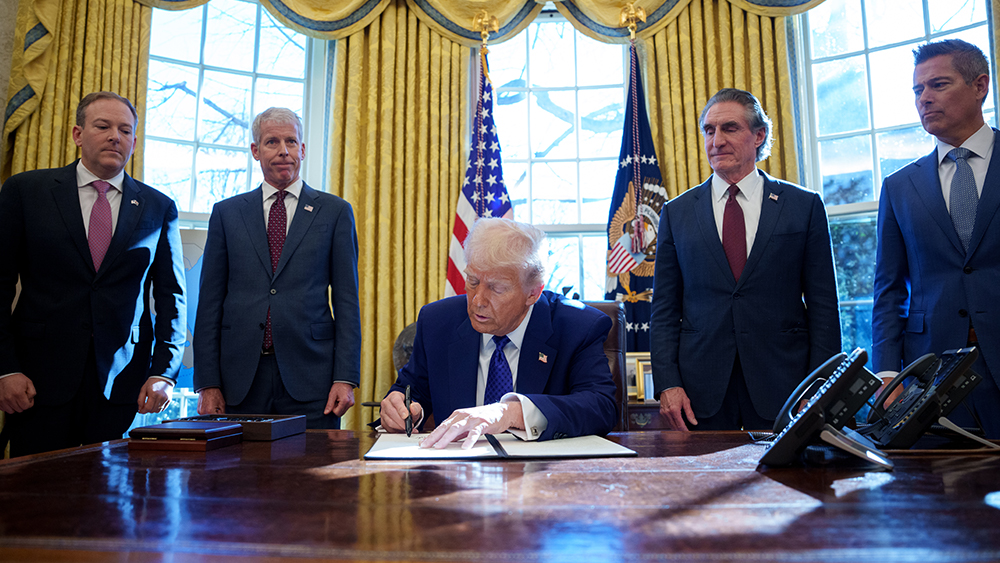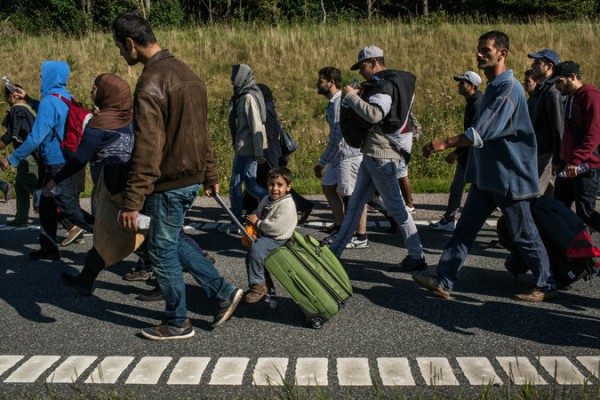CIA deploys drones over Mexico to spy on drug cartels, upping stakes in narcotics war
By bellecarter // 2025-02-21
Tweet
Share
Copy
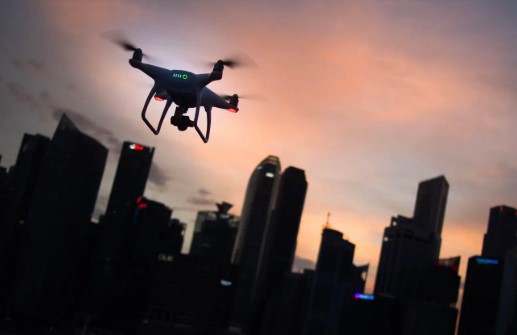
- The Central Intelligence Agency (CIA) has commenced covert drone missions over Mexico using MQ-9 Reaper drones to gather intelligence on drug cartels, marking a more aggressive stance in the U.S. anti-drug campaign.
- These missions, which began under the Biden administration, currently involve unarmed drones but can be equipped for precision strikes, similar to those conducted in conflict zones such as Iraq, Somalia and Syria.
- The CIA's engagement is part of a broader strategy to combat narco-trafficking, emphasizing the severity of the issue and the rise of powerful cartels that have increased violence and social instability.
- Mexico has responded cautiously to these operations, acknowledging the possibility of espionage but denying any violation of national airspace, while emphasizing the importance of information sharing with the United States.
- Both countries have intensified their efforts to combat drug trafficking, including increased military presence and policy shifts, reflecting the need for coordinated action and the complexity of the ongoing challenge.
Increased military presence and policy shifts
In response to growing U.S. concerns, Mexico has also intensified its efforts to combat drug trafficking. The country has deployed thousands of troops to the border to crack down on smuggling operations. This increased military presence underscores the bilateral nature of the issue and the need for coordinated action. Trump's national security team has been particularly vocal about the need for a more aggressive approach. National Security Adviser Mike Waltz, while a Florida congressman, co-introduced legislation in 2023 that would have authorized military force against drug cartels. "All options will be on the table if we're dealing with what are designated to be foreign terrorist organizations who are specifically targeting Americans on our border," said Pete Hegseth, Trump's secretary of defense, in a recent interview with Fox News. The CIA's deployment of drones over Mexico represents a significant shift in the U.S. strategy against drug cartels, reflecting the growing urgency and complexity of the challenge. While the current missions are focused on intelligence gathering, the potential for armed strikes adds a new dimension to the ongoing narco-war. The response from Mexico highlights the delicate balance between national sovereignty and the need for international cooperation in addressing transnational threats. As both nations continue to grapple with this issue, the deployment of drones marks a critical turning point in the fight against drug trafficking. Head over to DrugCartels.news to read related articles on Mexican drug cartels. Watch the video below that talks about a secret drug tunnel officials uncovered near the border wall. This video is from the NewsClips channel on Brighteon.com.More related stories:
US spy plane conducts strategic operations along border as drug cartels look for war. The CARTEL CONUNDRUM: U.S. military intervention in Mexico poses significant risks. "All options on the table": Defense Secretary Hegseth signals potential military strikes against Mexican cartels.Sources include:
NYPost.com CNN.com Brighteon.comTweet
Share
Copy
Tagged Under:
Donald Trump national security Mexico drug cartels CIA espionage big government drug trafficking drug smuggling covert operations drone missions MQ-9 Reaper drones narco war national airspace transnational threats
You Might Also Like
IRS fires 6,000 employees as Trump Administration targets government waste
By Cassie B. // Share
A conservative triumph: Senate confirms Kash Patel as new FBI director
By Willow Tohi // Share
Mexico warns U.S. against sovereignty violations as Trump targets drug cartels
By Cassie B. // Share
How USAID assisted the corporate takeover of Ukrainian agriculture
By News Editors // Share
DOGE exposes 4 million credit cards racking up $40 billion in Fiscal Year 24
By Willow Tohi // Share
Recent News
By arseniotoledo // Share
Kumquat: The tiny citrus powerhouse with big health benefits
By zoeysky // Share

